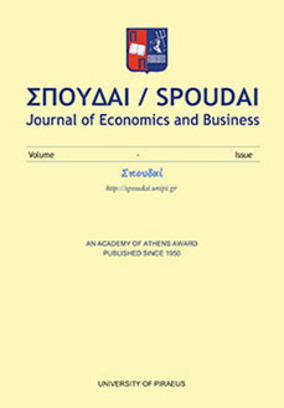Will human action by Ludwig von Mises help understand what causes the 2008 economic crisis?
Part of : Σπουδαί : journal of economics and business ; Vol.61, No.3-4, 2011, pages 26-47
Issue:
Pages:
26-47
Author:
Abstract:
Ludwig von Mises was the acknowledged leader of the Austrian School of economic thought, a prodigious originator in economic theory, and a prolific author. Mises's writings and lectures encompassed economic theory, history, epistemology, government, and political philosophy. His contributions to economic theory include important clarifications on the quantity theory of money, the theory of the trade cycle, the integration of monetary theory with economic theory in general, and a demonstration that socialism must fail because it cannot solve the problem of economic calculation. Mises was the first scholar to recognize that economics is part of a larger science in human action, a science that Mises called «praxeology». Austrian business cycle theory has a legitimate claim to being the most authoritative explanation of the recent global financial and economic crisis. Indeed, many mainstream economists have begun to analyze the crisis, perhaps unwittingly so, in terms that sound as if they were derived directly from the Mises theory of macroeconomic fluctuations. Even advanced economic research into financial leverage and liquidity does conceptually little more than develop the framework of Austrian business cycle theory.
Subject:
Keywords:
Austrian school of economic theory, Ludwig von Mises, human action, economic crisis
Notes:
Περιέχει διαγράμματα, σημειώσεις και βιβλιογραφία




